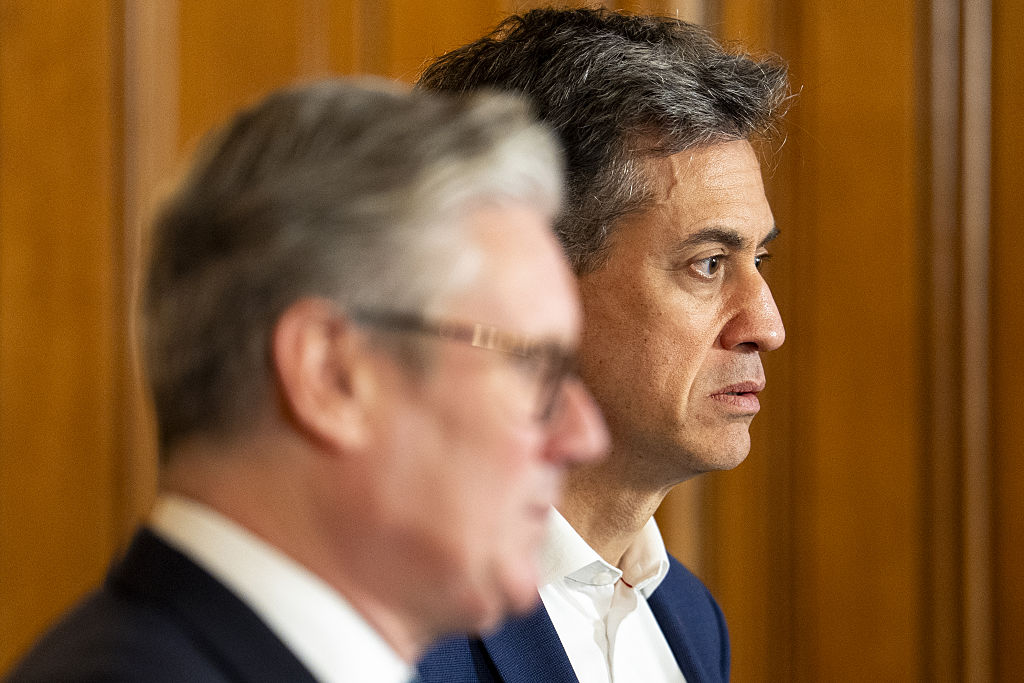‘The UK-UAE relationship is central to driving economic growth – it’s our largest trading partner in the region.’ So tweeted David Lammy earlier this month following a meeting with Sheikh Abdullah Bin Zayed, the Emirati foreign minister. Perhaps the Foreign Secretary should think twice before making such boasts. The UAE is up to its neck in the crisis unfolding in Sudan – and the United Kingdom’s warm relations with Abu Dhabi may soon develop into a diplomatic minefield for the government.
Between the latest offensives in the Russo-Ukrainian war and the ongoing conflict in Gaza, there has been too little space even in the international pages of the papers for the horror story unfolding in Sudan. This has seemed to suit British politicians: the previous government was accused of trying to ‘suppress criticism’ of the UAE’s role in the conflict.
Government policy is to ‘smash the gangs’ – it should start with the RSF
Labour cannot afford to play the same game. The veil of ignorance which has shrouded the conflict is fraying fast – and the brute facts of the Sudanese war speak for themselves. Since fighting broke out in April last year, more than a fifth of the population (some ten million people) have been displaced. The capital, Khartoum, has been ‘razed’; mass graves are reportedly visible from space.
The viciousness of the fighting is no surprise. The Rapid Support Forces (RSF) – the paramilitary rebels Abu Dhabi is arming and bankrolling – are the successors of the infamous Janjaweed militia that waged a campaign of ethnic cleansing in Darfur in the 2000s. The RSF’s war against the Sudanese government and its terror campaign against civilians has already claimed the lives of an estimated 150,000 people.
The RSF and their leader Mohamed Hamdan Dagalo (known as ‘Hemeti’) are also backed by PMC Wagner, the notorious Russian ‘mercenaries’ widely recognised as a deniable arm of Vladimir Putin’s military machine. Both Moscow and Abu Dhabi are in Sudan for one reason: the country’s vast natural resources. The UAE is especially interested in its agricultural output, as the Gulf state imports 90 per cent of its food; Russia seeks any means to circumvent Western sanctions and prop up its economy by plundering Sudan’s gold deposits.
Whatever their reasons, their proxy soldiers are perpetrating war crimes on a vast scale. The RSF stands accused of reviving its genocidal campaigns in Darfur, which previously saw more than 300,000 people killed through fighting, disease, or starvation between 2003 and 2008.
If the UK runs diplomatic cover for the UAE as it puts guns in the hands of Hemeti’s troops, we will share culpability for the results. The RSF would not have been able to maintain such a savage campaign for so long without the continued support of its foreign backers.
Those seeking to make excuses for inaction can, as so often in such conflicts, claim that there is nothing to choose between the two sides. After all, has the International Criminal Court not opened new investigations against both the RSF and the Sudanese Armed Forces?
Such reasoning should cut no ice with even the most cold-hearted realist. The war in Sudan is not just the worst humanitarian crisis in the world at present, with 26 million people there facing starvation and 2.5 million expected to die of hunger by the end of the year, it is also a direct threat to British interests.
For starters, the displacement of tens of millions of people means even more refugees streaming towards Europe. There are already reports that a ‘very high number’ of those arriving in Britain on small boats are fleeing Sudan. Government policy is to ‘smash the gangs’ – it should start with the RSF.
Moreover, the close working relationship between the UAE and Wagner (read: Russia) gives lie to the idea that the Emiratis are dependable allies of the UK. Not that we needed even more evidence: as I wrote last year, core OPEC states including the UAE have been instrumental in resisting Western efforts to bring down the global oil price which has been propping up the Russian war economy (as well as exacerbating the cost of living crisis here at home).
Not everyone in Whitehall is asleep at the wheel. Lord Collins of Highbury, a Foreign Office minister, has acknowledged that the ‘world is not paying enough attention’ to Sudan. Britain has also increased humanitarian support to the region and imposed sanctions on key officials. But it makes a mockery of such good work – not to mention British taxpayers, who pay for the aid budget – if Lord Collins’ boss is cosying up to the Emirati government which has been instrumental in prolonging the war.
That is not to say there are any easy fixes. The regime of Abdel Fattah al-Burhan is a brutal military dictatorship in its own right. Khartoum is expected to oppose any move to deploy UN peacekeepers, without which any practical intervention is extremely difficult; talk of the Security Council extending the current arms embargo is a joke, considering Russia’s active role in supporting the RSF and the UAE’s shameless gun-running.
But if Britain is to regain the position of global leadership to which every government claims to aspire, ministers are going to have to make a choice: stand up for our principles, even when it costs us, or look the other way whilst so-called allies strike directly against our values and our interests – and hope the rest of the world continues not to notice.







Comments